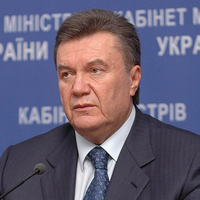When Viktor Yanukovych finally ascended to the presidency of Ukraine in 2010, commentators could be forgiven for thinking that the era of caustic bilateral relations with Russia, Ukraine's largest neighbor and former imperial ruler, would come to an end. That era of tension had begun in 2004, after the Orange Revolution sidelined the largely pro-Russian wing of the Ukrainian oligarchy. For the following six years, Kiev and Moscow clashed on a seemingly endless range of issues, from esoteric debates on the interpretation of Soviet history to major international events like the Georgian War.
Natural gas, in particular, became a source of permanent crisis. No longer interested in subsidizing a state ruled its putative political opponents, Moscow attempted to withdraw longstanding subsidies on gas shipments to Ukraine. With its grossly inefficient and highly energy-intensive economy, Ukraine sought to keep the supplies of cheap gas flowing, and since it controlled virtually all of the transit routes to European markets for Russian gas, it possessed the leverage to resist Russian pressure. As a result, the years between 2005 and 2009 were marked by seemingly inevitable annual "gas wars," in which Russia would demand a hike in rates, Ukraine would turn off the pipes and Europe would shiver as negotiations dragged out.
A resolution of sorts appeared to be reached last year. The final negotiations between then-Ukrainian Prime Minister Yulia Tymoshenko and Russian Prime Minister Vladimir Putin in 2009 set a concrete timetable for a move toward market rates. It also dismantled some of the intermediary bodies within the Ukrainian gas industry that existed primarily to distribute energy rents to political actors. Then Yanukovych won the 2010 presidential election, which promised to put "Moscow's man" in charge. Yet, in the past month another Russo-Ukrainian gas war has been brewing, and relations have plummeted once again. What's going on?

